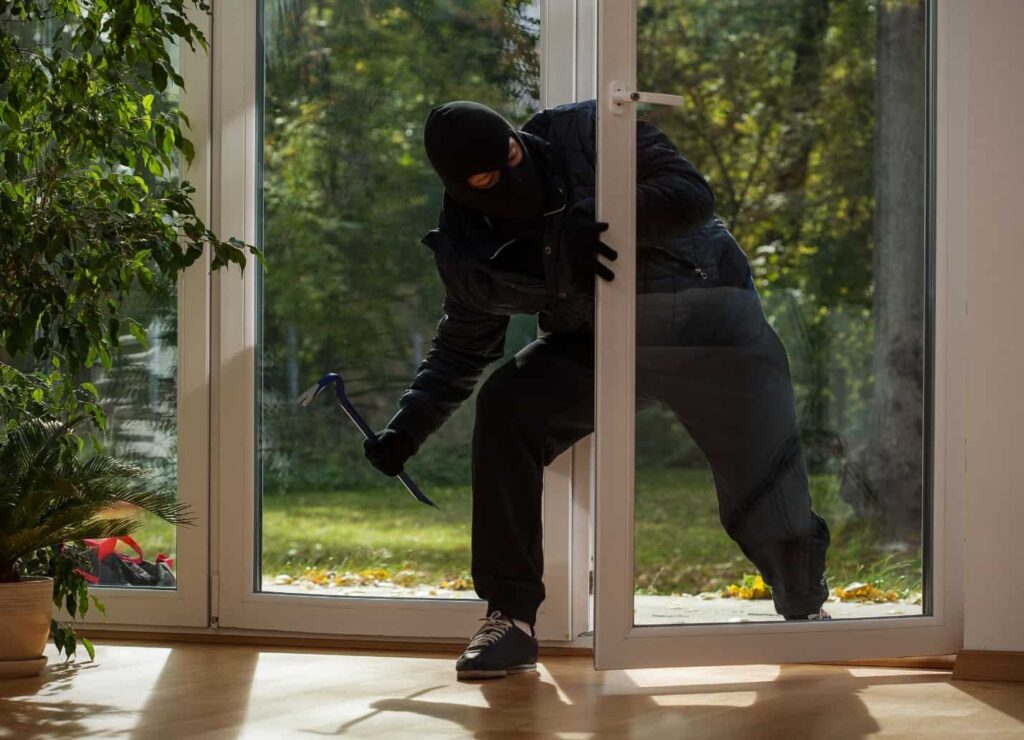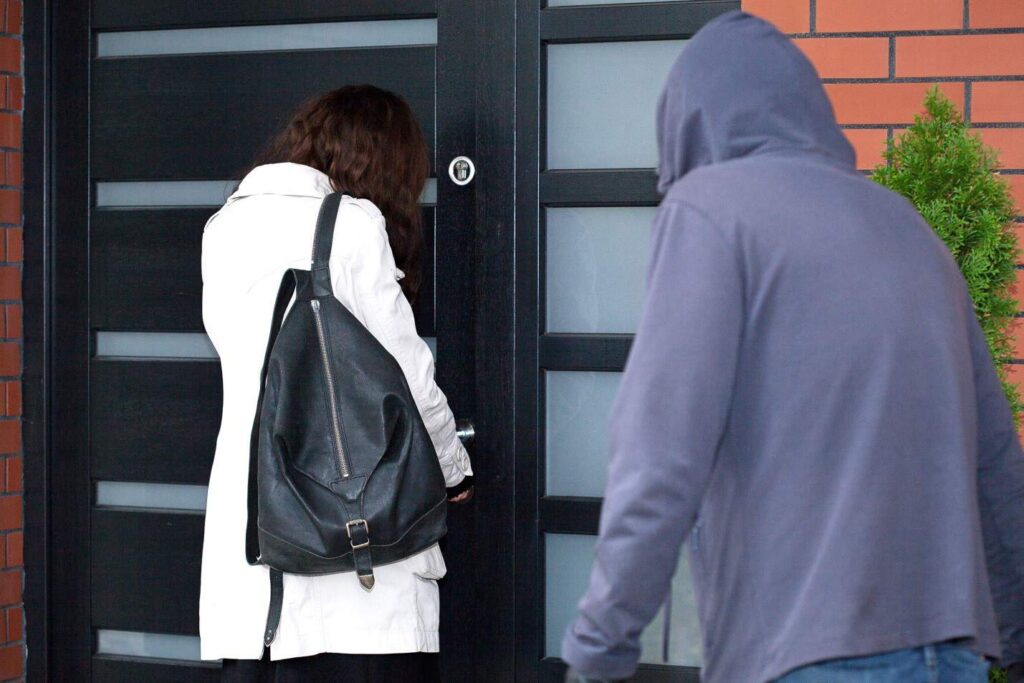The Ultimate Guide to Understanding Wagering Requirements: Everything You Need to Know
October 21, 2024

Marijuana Users Still Can’t Carry Guns in Colorado
Domestic Violence Charges in a Gay or Lesbian Relationship
Posted by: Jacob E. Martinez
Category: Burglary | Residential Burglary
When the weather is warm and the summer is in full swing in Colorado, residential burglary rates tend to surge. In part, this may be because residents are more likely to leave windows and doors open, making it easier for burglars to escape with valuables.
Local law enforcement officials are upping anti-burglary efforts across the state, and urging citizens to do the same. In a recent article published by the Denver post, the Denver Police Department encouraged residents to burglarproof their homes by taking measures such as installing security doors and exterior bars on basement windows.
Under Colorado law, residential burglary occurs when someone illegally enters a home with the intention of committing a crime. Frequently with residential burglaries, the intended crime is some form of theft, but it could also be another crime, such as assault, criminal mischief, or contacting someone who has a restraining order against you.
In order to qualify as residential burglary in Colorado, the following points must exist:
Any type of home. A residential burglary crime typically must involve some type of home or structure where a person lives, such as a house, apartment building, or trailer.
Unlawful entry. In order to be charged with residential burglary, you must have entered the home illegally or without permission. You can be charged with residential burglary even if only a part of your body enters the home—for instance, if you reach in through the window or begin walking through the door.
Intent to commit a crime. In order to be charged with residential burglary, the defendant must have intended to commit some kind of crime, such as theft, stalking, or a sex crime.
In Colorado, there are two classes of residential burglary: second-degree and first-degree. The type of burglary you are charged with depends largely on the circumstances of the criminal incident, including your intent and whether or not you used a weapon.
Second-degree residential burglary. You can be charged with second-degree residential burglary for entering a home illegally with the intent to commit a crime while inside, whether that crime is theft, kidnapping, or arson. Remember that breaking the terms of a restraining order is also considered a crime, so you could be charged with residential burglary of your own former home if a person who took out a restraining order against you currently lives there. Second-degree burglary of a home is a class three felony, and is punishable by up to 12 years in prison and up to $750,000 in fines.
First-degree residential burglary. In Colorado, this is the most serious type of burglary. You can be charged with first-degree burglary if you enter a home illegally and assault or threaten a person while entering or exiting the home, or while inside the home. First-degree burglary is a class three felony, and may be penalized by up to 12 years in prison and $750,000 in fines. If you break into a residence with the intention of stealing a controlled substance, your charge may be elevated to a Class 2 felony.
In addition to lengthy prison sentences and heavy fines, a residential burglary conviction may require you to pay restitution to the victim if the crime resulted in property damage. In this situation, you may be required to pay for the cost of replacing or repairing their damaged property in addition to any fines imposed by the court.
A judge may also choose to impose a probation sentence in addition to your prison sentence, requiring you to strictly comply with court conditions during this period.
Finally, as with all serious crimes in Colorado, a burglary conviction may leave a lifelong stain on your criminal record, making it difficult for you to find employment, obtain housing, or successfully apply for a loan.
If you are facing a residential burglary charge in Colorado, it’s critical to seek guidance from a seasoned property crimes defense lawyer. There are a variety of effective defenses to a burglary charge—for instance, your attorney may be able to demonstrate that you didn’t intend to commit a crime when you entered the home.
When you contact a Colorado residential burglary attorney, he or she will explain your rights and options in a clear and upfront manner before helping you develop the best defense strategy for your unique circumstances. In court, your criminal lawyer will be your fiercest advocate, working tirelessly to protect your rights. With a top property crimes attorney on your side, you are in the best position possible to have your residential burglary charges reduced or dropped entirely.
About the Author:
Denver-based criminal defense and DUI attorney Jacob E. Martinez is a knowledgeable and experienced litigator with a record of success providing innovative solutions to clients facing criminal charges of any severity. Mr. Martinez has been designated a Top 100 Trial Lawyer by the National Trial Lawyers and has been awarded both the Avvo Client’s Choice Award and Avvo Top Attorney designation, evidencing his reputation for his exemplary criminal and DUI defense work and high moral standards.
Jury Trial - Not Guilty
Jury Trial - Not Guilty
Arapahoe 1st Degree Assault/Vehicular Assault
Jury Trial - Not Guilty
Denver Domestic Violence Assault Case
Jury Trial - Not Guilty
Denver D.V. Assault
Jury Trial - Not Guilty
Denver Careless Driving Resulting in Death
Jury Trial - Not Guilty
Jefferson County Felony Menacing
Jury Trial - Not Guilty
Adams County DUI
Jury Trial - Not Guilty
Jefferson County DUI
Jury Trial - Not Guilty
Jefferson County DUI
Jury Trial - Not Guilty
Jefferson Vehicular Assault/DUI
Jury Trial - Not Guilty
Jefferson County DUI
Jury Trial - Not Guilty
Boulder County DUI case
Jury Trial - Not Guilty
Arapahoe County DUI case
Jury Trial - Not Guilty
Adams County DUI case
Jury Trial - Not Guilty
Douglas County DUI case
Jury Trial - Not Guilty
Gilpin County DUI case
Dismissed
Broomfield County Probation Revocation case
Dismissal
Arapahoe County DUI case
Deferred Judgment
Arapahoe County DUI case
Deferred Judgment
Douglas County DUI case
Deferred Judgment
Larimer County DUI case
Deferred Judgment
Arapahoe County DUI Case
Deferred Judgment
Denver Felony Burglary Case
Deferred Judgment
Arapahoe County DUI case
Dismissed
Arapahoe County Protection Order Case
Dismissed
Golden Destruction of Property case
Dismissed
Jefferson County Protection Order case
Dismissed
Jefferson County Domestic Violence case
Dismissed and Sealed
Jefferson County DUI case
Dismissed
Denver Major Traffic Offense case
Dismissed and Sealed
Broomfield County Domestic Violence case
Dismissed
Summit County DUI Revocation
Dismissed
Denver DUI Revocation
Dismissed
Denver DUI Revocation
Dismissed
Denver DUI +.2 Involving Accident and Injury case
Dismissed
Denver DUI/Habitual Traffic Offender case
DISMISSAL
Denver District Aggravated Theft
Dismissed
Greenwood Village Assault case
Dismissal
Elbert County DUI
Dismissed
Arapahoe County Domestic Violence case
Dismissal
Jefferson County DUI
Dismissal
Denver Municipal Assault
Dismissed
Boulder County Domestic Violence Assault case
Dismissed
Wheat Ridge Assault case
Dismissed
Jefferson County DUI case, with 2+ Prior Convictions
Dismissed
Arapahoe County Domestic Violence case
Dismissed
Broomfield County Domestic Violence case
Dismissed with No Charges Filed
Jefferson County Felony Theft case
Dismissed
Arapahoe County Felony Theft case
Dismissed
Boulder County Felony Theft case


